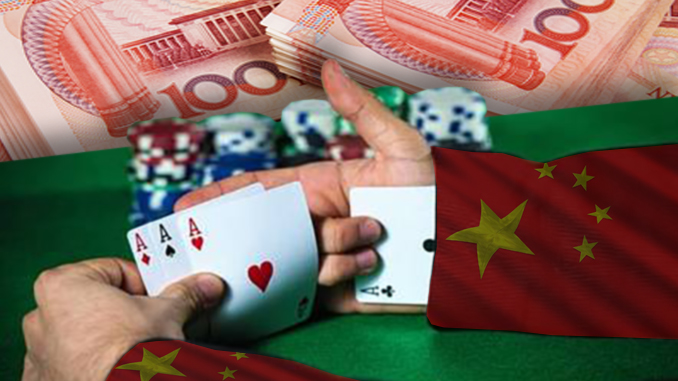
The Chinese government uses many methods to kill competition.
By Rick Manning
All of those who get worked up over negligible increases in U.S. tariffs on Chinese-made goods, please remember this basic fact: China rigs the game by cheating.
China manipulates its currency by artificially pegging it well below the dollar, and devaluing it further to offset tariff impacts, because the Chinese desperately need to maintain their U.S. market share to keep their economy running. China also steals the intellectual property of U.S. companies and then sells that innovation around the world for pennies on the dollar. China then dumps products onto the U.S. market with the intent of driving out of business U.S. manufacturers, who are the innovators, so they can be the sole source providers of critical component parts. They not only do this directly from China but also utilize other countries as pass-throughs for Chinese originating goods, as well as steel and aluminum products. This is a big problem for the world.
Sean Keogh, the operations manager of AmTex Machine Products, the largest independent U.S. coupling manufacturer, testified before a congressional committee in May that his company is operating at 35% capacity strictly due to Chinese policies designed to create a pricing disadvantage for his company.
Keough clearly states that the Chinese flooding of the markets with cheap, government subsidized alternatives is not the only threat, as he testified that China also reverse engineers proprietary threads created by his company’s heavy investments in research and development.
In his testimony, Keough explained: “The pipe mills and oil and gas engineers invest heavily in research and development to bring these new technologies to challenging drilling and extraction environments. We invest to obtain licenses for those patented designs to produce these semi-premium and premium couplings. Once we obtain the license, we should have the opportunities to sell these couplings globally, but the Chinese have flooded the South American and Middle Eastern markets with their reverse-engineered couplings. As a result, the Chinese government programs are not just impacting their U.S. sales, they are also taking away export markets and our ability to help reduce the U.S. trade deficit.”
In clear, unambiguous terms, Keough has made it clear that China cheats, both by flooding markets around the world to create market dominance for their companies and drive competitors out of business, but also by stealing technological innovations from U.S. companies that would allow our nation’s manufacturers to win based upon technological superiority.

The Office of the U.S. Trade Representative should use its authority to include pipe couplings in with the steel tariffs, but they also should seek all other remedies at their disposal using the international trade court.
Most importantly, as President Donald Trump met his Chinese counterpart at the G-20 meeting in late June, hopefully his team remembered that China continually seeks to interject itself into America’s critical industries including our energy extraction sector. This is not friendly competition with an ally, but rather a planned attack designed to create leverage and potentially cripple critical sectors of our economy.
The president is right to insist that China stop manipulating its currency and move to protect intellectual property rights, but it is equally important that he remember President Ronald Reagan’s credo when dealing with the former Soviet Union, to “trust but verify.”
Rick Manning is the president of Americans for Limited Government.


My own company CEO has bragged that he has gotten his outsourced product around the Trump Chinese tariffs by using a Japanese company as a middleman and saved 40% of the cost by doing so. The tariffs won’t work if there are these escapes. I want my company to be profitable, but I also want to keep my own job!